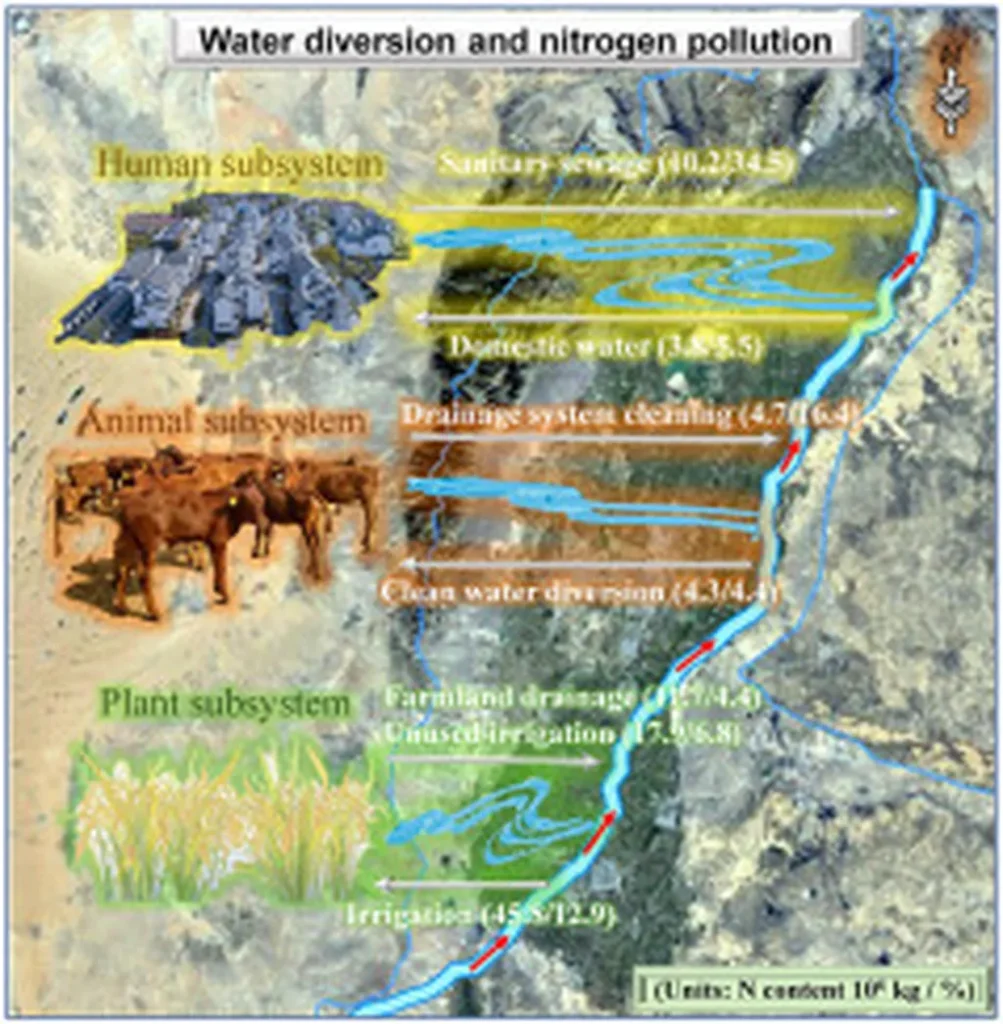In the arid landscapes of Ningxia, where the Yellow River carves its path, a groundbreaking study has unveiled the intricate dance between human activity, climate change, and the region’s ecological health. Led by YANG Zhao from the School of Civil Engineering and Water Conservancy at Ningxia University, the research, published in *Guan’gai paishui xuebao* (translated to *Journal of Glaciology and Hydrology*), offers a compelling narrative of how irrigation projects are reshaping both the environment and the economy.
The study, which spans nearly four decades from 1983 to 2021, focuses on the Net Primary Productivity (NPP) in the Yellow River Water-pumping Irrigation Areas. NPP, a critical indicator of the ecosystem’s carbon cycle, has been on the rise, with an average annual growth rate of 10.95 g/(m²·a). This increase is not just a result of natural climatic shifts but is significantly influenced by human activities, contributing to a 70.27% change in NPP compared to 29.73% from climate changes.
“Human activities, particularly irrigation projects, have played a pivotal role in enhancing the region’s NPP,” YANG Zhao explains. “These projects have not only boosted agricultural productivity but have also indirectly supported socio-economic development, creating a positive feedback loop that benefits both the environment and the local economy.”
The research employed advanced models, including the Carnegie-Ames-Stanford Approach (CASA) model, scenario simulations, structural equation model (SEM), and a vector autoregression (VAR) model, to dissect the complex interactions between NPP, socio-economic factors, and irrigation infrastructures. The findings highlight the critical role of precipitation, solar radiation, evapotranspiration, and irrigation water in influencing NPP. Among human factors, irrigation water and soil moisture emerged as key drivers.
The implications of this research are profound, particularly for the energy sector. As the world grapples with the challenges of climate change and the need for sustainable development, understanding the interplay between irrigation, ecology, and economy becomes crucial. The Yellow River Water-pumping Irrigation Project, for instance, has demonstrated how strategic water management can support both ecological health and economic growth.
“Our study underscores the importance of integrating ecological and socio-economic considerations in water management policies,” YANG Zhao notes. “By doing so, we can create a sustainable framework that supports both environmental conservation and economic development.”
The research not only sheds light on the current dynamics but also offers a roadmap for future developments. As the energy sector increasingly turns to renewable sources and sustainable practices, the insights from this study can guide the implementation of projects that balance ecological needs with economic aspirations.
In the broader context, the findings from this study could influence water management strategies globally, particularly in arid and semi-arid regions. By understanding the intricate relationships between climate, human activity, and ecosystem health, policymakers and industry leaders can make informed decisions that foster sustainable development.
As we stand on the precipice of a new era in energy and environmental management, the lessons from Ningxia’s Yellow River Water-pumping Irrigation Areas serve as a beacon, illuminating the path towards a more sustainable and prosperous future.

